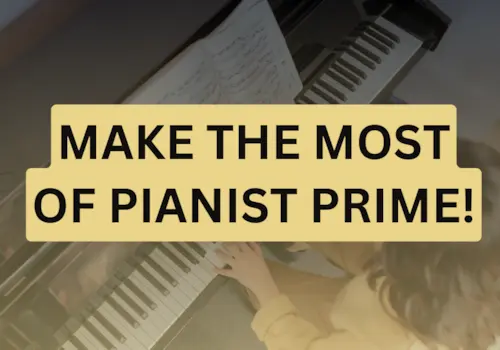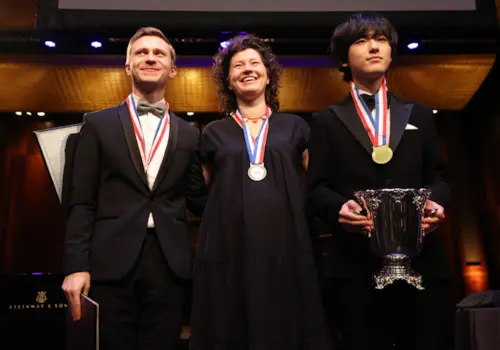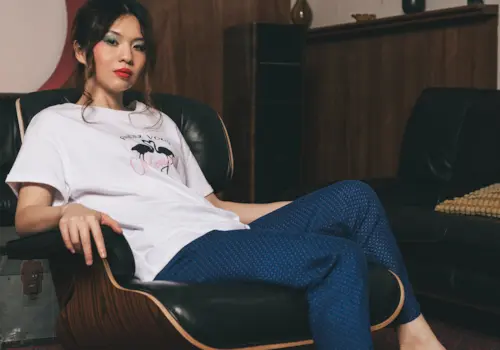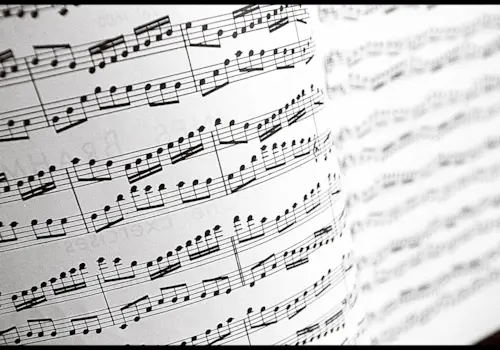The South Korean pianist took home First Prize at the Concours Musical International de Montréal in May
Founded in 2001, the CMIM (Concours Musical International de Montréal) aims to further the development of the world’s most promising young artists, while making classical music more accessible to the greatest possible number of people.
This was particularly evident in the 2021 piano edition, when from 26 April-14 May, 26 semi-finalists representing eleven countries came to record their recital submissions in sixteen concert halls around the globe, their performances available for free, on demand viewing.
Su Yeon Kim, winner of the grand prize – valued at over $180,000 and including a concerto performance with the Orchestra symphonique de Montréal, concert tour in three North American cities and a solo album recording on the Steinway & Sons label – joins a legacy of notable CMIM laureates, counting Measha Brueggergosman, Philippe Sly, Benjamin Beilman, Beatrice Rana, Angela Meade and Charles Richard-Hamelin.
The 27-year-old pianist is no stranger herself to competitions, having previously placed in The Johann Nepomuk Hummel, Alaska, and Hastings International Competitions. We spoke to Su Yeon about how taking top prize at this year’s virtual event was shaped by her past and will influence her future.
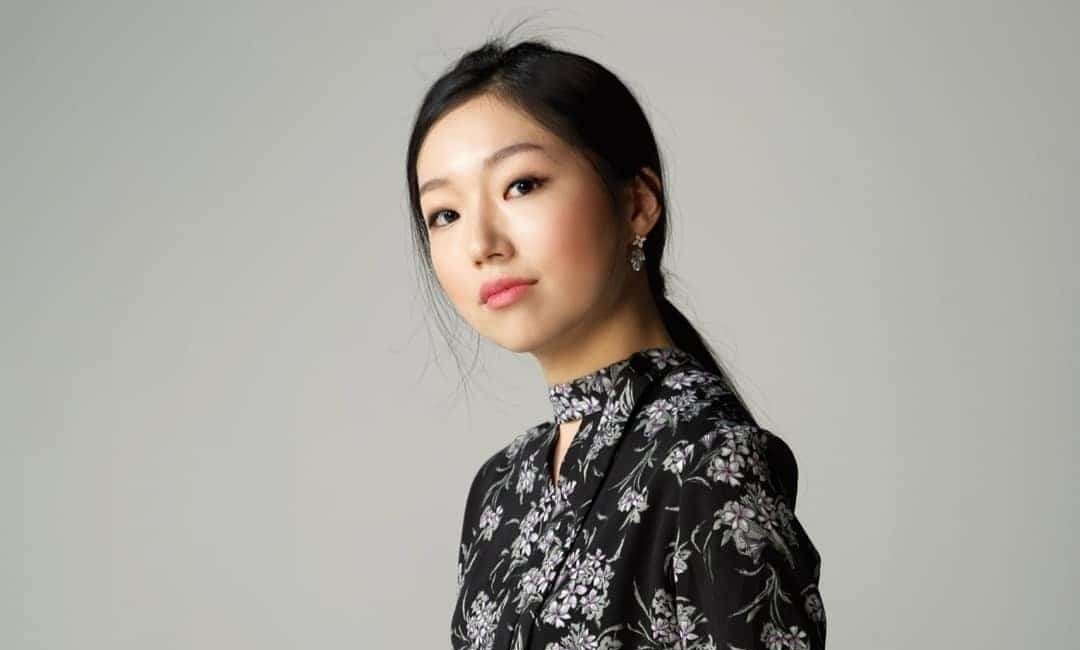
“Since childhood my favourite composer has been Chopin. I have always loved to listen to and play his music. And since I am living in Austria, I am becoming more appreciative of Mozart." - Su Yeon Kim
At the closing ceremony of the CMIM, you spoke about playing in a hall without the public – that it was both “difficult and challenging to play in front of the camera in such an empty place,” and that you had to “imagine that the audience was there.” How were you able to imagine the audience while maintaining focus on the music? Did you find you were more nervous playing to a camera than to a hall full of people?
“I think there are different types of being ‘nervous’ with or without an audience. I would not say it makes me particularly nervous to be in front of camera and microphones, but there is some added pressure. Music exists to be delivered to the listeners, so I tried to imagine delivering the meaning of all phrases and all the emotions through the music. This is a different experience than playing alone to myself.”
Each CMIM finalist was required to perform three of Twenty-Four Preludes by Canadian composer John Burge, including his Off-beat Waltz, Allegro energico and Spring Thaw, a work in which one must simultaneously play the piano keys and pluck its strings. How do you find performing or practising contemporary compositions differs from playing the “classics”?
“When playing contemporary compositions, I try to be very precise and to follow the composer’s notations as accurately as possible, rather than adding too much of my own interpretation. My biggest responsibility is to show respect to the composer.”
You can watch Su Yeon Kim's Finale performance in its entirety below.
Because the CMIM moved to a virtual format, you were able to programme a more diverse musical set for the finals – usually you would be performing from a specific set of concerti. What inspired you to create this particular programme?
“If we had to play a concerto on the final round, we would have been made to choose a work that was mostly very powerful and virtuosic – what we thought would be the ‘winning repertoire.’ Without this constraint, I just felt free to organize a programme of works that I like to play and that reflect my personality well. The result was a very enjoyable programme for me. I also found it interesting to listen to the varied programmes of the other performers.”
You’ve studied internationally with well-respected teachers Pavel Gililov (Mozarteum University Salzburg), Choong-Mo Kang (Korean Institute for the Gifted in Arts) and Paul Gulda. Is there any advice from them that you particularly hold dear?
“I’ve been studying with my teacher Pavel Gililov for eight years now. From him I have learned – among many other things – how carefully we must read both the music on the score and ‘behind the score’ from the very beginning. I can use my own imagination and interpretation of the music, but it has to be based on everything that is written in the score. With this he has helped me so much to believe in myself and to find my own voice in my playing.
I still receive continuous support and great advice from Paul Gulda, whom I first met in Vienna in 2011. He advises me about playing in an intuitive and philosophical way, which has informed my technique and artistry enormously.
Finally, I was taught by Choong-Mo Kang when I was a teenager, so the basis of my piano playing mostly came from him. Once he said to me that ‘living as a musician is like chasing rainbows.’ I couldn’t get at that time what he meant exactly, but as I’ve grown up and done more I’m starting to understand. I’ve learned the substance of the process and how difficult and beautiful it is.”
Which composer's music do you enjoy playing the most and why? Has this answer evolved over time?
“Since childhood my favourite composer has been Chopin. I have always loved to listen to and play his music. And since I am living in Austria, I am becoming more appreciative of Mozart.
But there is so much great music in the world and life is too short to not want to learn and play it all!”
You’ve performed in Herkulessaal Munich, at the Great-Hall in Budapest Liszt Academy, Grosser Saal Salzburg, Auditorium Gaber Milano and Kennedy Center Washington D.C. among many others. Do you have a favourite among venues, or was there a specific place you were especially excited to play?
“It was very memorable when I played in Herkulessaal in Munich in 2015. I was only 21 years old, and I could feel what an honor it was to play in such a historical venue. I remember being overwhelmed by the beautiful interior and acoustic of the hall.”
As part of your grand prize, Steinway & Sons will record a solo album under its eponymous label. Will this be your debut solo recording?
“Yes, it will be my debut solo recording. I am so grateful and very much looking forward to it!”
You can keep up to date with Su Yeon Kim on Instagram.

